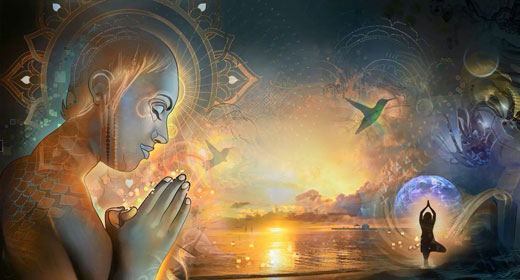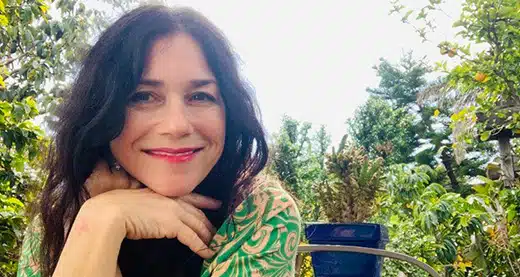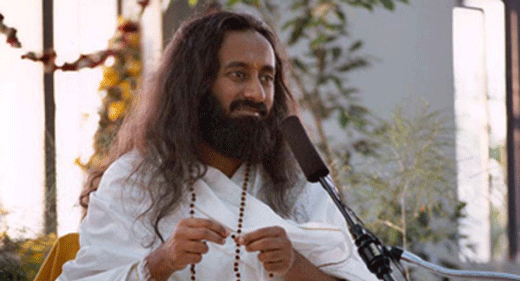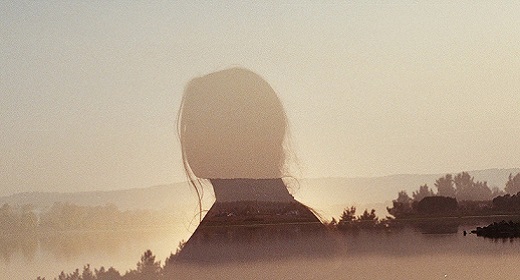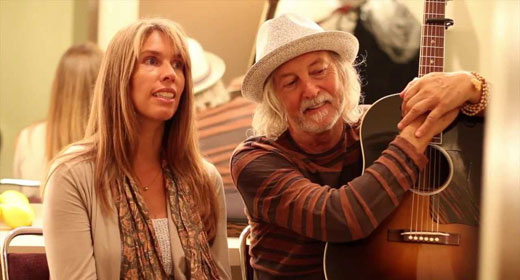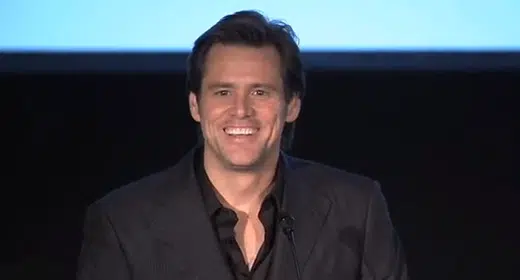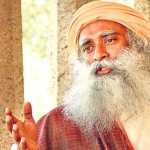by Ray Hemachandra: I love talking to Wayne Dyer. First of all, the breadth and depth of thought across disciplines he brings to a conversation are amazing…
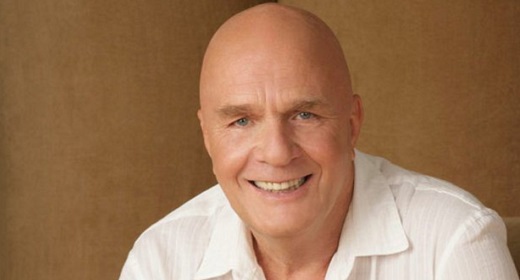
I always learn new and important things. Secondly, the last time he saw me, he exclaimed, “Ray Hemachandra-dandra-dandra!”
When Wayne Dyer starts calling you buddy nicknames, you feel pretty good about it.
Certainly better than when your high-school AP Physics teacher calls you, “Ray Hematoma.” That man may not have been my buddy.
Anyway, it’s Thanksgiving week, and this extended excerpt from the second time I interviewed Wayne — with its emphases on service and gratitude — came to mind.
I’m pleased to share it with you. I hope you enjoy it.
And I thank you for being a part of my community.
Ray Hemachandra: The enduring emphasis today on the law of attraction is predominantly about material wealth. What are the consequences of that kind of skew to this teaching?
Dr. Wayne W. Dyer: First of all, I think the law of attraction has been misstated. You do not attract what you want.
You attract what you are.
That’s how the law of attraction works.
Twenty-five centuries ago in ancient China, Lao-tzu said there were four virtues. If you live them — if you live in a place of God-consciousness — the universe will give you God-consciousness. If you live in a place of ego-consciousness, though, the universe will give you more of that.
One virtue is reverence for all of life. You never kill, you never harm, you never wish harm, and you never have thoughts of harm directed toward yourself or others. You revere all life.
Another virtue is natural sincerity, which is manifested as honesty. Just be honest with who you are. Don’t pretend to be something you’re not. Don’t be a phony. Walk your talk. That’s how God works, so doing it is emulating how Source works.
The third virtue is gentleness, which manifests as kindness toward all others.
The fourth virtue, which is relevant here, is supportiveness. If you say to the universe, “Gimme, gimme, gimme,” which is what a lot of the work around the law of attraction says because of a misinterpretation, then the universe gives you back what you offered out. You get more “gimme, gimme, gimme.”
“Gimme” means you don’t have enough. You have a shortage. The universe just keeps giving you more shortage because of what you’re thinking and saying.
If, on the other hand, you say to the universe again and again, “How may I serve? How may I serve? How may I serve?” and you live a life of constancy reflecting that principle, the universe will respond back, “How may I serve you?”
Ray: With an approach centered on lack and need, even if you are getting things, the feeling of shortage keeps coming back to you. So no matter what you get, you still always feel need, don’t you?
Wayne: Exactly, and that’s why I say you don’t get what you want, you get what you are. When you live the virtues — when you live in that place of God-consciousness — all these rules we have about cause and effect, beginnings and ends, don’t have any impact or relevance.
As Joel Goldsmith said, in the presence of the God realized, the laws of the material world do not apply.
That’s why people who live steadfastly at a place of God-consciousness can perform miracles. They can create. They can make virtually anything happen. From the space in-between, that last inch is the critical inch you have to take to reach that place. Every once in a while, I get to that place of God-consciousness, and miracles do happen.
Ray: If you’re raised with pessimistic, negative beliefs, that’s your world. That’s your understanding of reality. So, in a fundamental way, abandoning those unhealthy beliefs means abandoning your life. That requires a real leap of faith, doesn’t it?
Wayne: But you’ve already abandoned everything you’ve ever known. All you have is now. That’s all there is. The whole idea that you’re tied to what you’ve been is nonsense.
I use the metaphor of a boat going down the river. When you’re standing at the back of the boat, looking at the water as you’re going along at forty knots, what you see there is the wake.
The wake is the trail that’s left behind.
You can ask the question, “What’s making the boat go forward?” It can’t be the wake. The wake can’t drive the boat. It’s just the trail left behind. It can’t make the boat go forward, any more than the trail that you’ve left behind in your life is responsible for where you’re going now in your life.
The belief that whatever you’ve been is what you have to be is a meme — a mind virus.
There is no past. That’s another illusion. Everything that has ever happened to you, to me, to anyone in this world, happened in the present moment. That’s all there ever is.
So your relationship to life isn’t your relationship to your past, it’s your relationship to the present moment.
How good are you at being in the now?
Most people tell themselves these excuses — I’ve always been this way, how can I possibly change, this is my nature, I can’t help it — that are just memes. They’re belief systems that keep you from being able to become all that you are intended to become. They’re impediments to your reaching God-realization, or Tao-centeredness.
People lose track of their purpose, because they are so back there — living in their past.
Byron Katie speaks about this: Who would you be without your story? Carlos Castaneda used to say if you don’t have a story, you don’t have to live up to it. So get rid of your story.
Ray: What’s the first step toward abandoning habituated ways of thinking?
Wayne: I don’t think in terms of steps very often. When you write articles it’s nice to have them like that, but life doesn’t happen linearly. But I think it’s just recognizing that who you are is not any of the stuff that you have. It’s not any of the things of the ego.
Coming to that awareness is a very hard thing for most people to do, but that’s an excuse. If you tell yourself it’s too hard, then you won’t take it on. But right now, for most people, it’s almost an impossibility to do so, because they’re so attached to “I am what I have”; “I am what I do”; “I am what my reputation is”; or “I am all of this material stuff.”
Getting past that just means having the recognition, as Pierre Teilhard de Chardin said, that you’re not here as a human being having a spiritual experience. It’s the other way around: You’re here as a spiritual being having a temporary human experience.
You come to know your essence — that you came from an energy, a vibrational frequency. Everything in the universe is frequencies. Even things that look solid are all frequencies, all movement.
Einstein said nothing happens until something moves. This chair I’m sitting in is moving. It may be hard to imagine, but if you took a microscope and really got in there, you’d see the spaces and a lot of particles all in movement.
Most of us are totally, completely misaligned. God-consciousness is up there, while most of us live down here at ego-consciousness. But what’s up there can’t recognize what’s down here. If you were a frog, and you were trying to see what this room is like, what would you see? Just try and picture it. A frog’s eyes are out on the sides, and they see from different frequencies altogether.
What we see would just come across as a blur to a frog. A frog can’t recognize what it isn’t. Neither can you. And neither can God.
So, if you’re not aligned with God, it’s hard to recognize yourself as being of God. The way that you get aligned with God is by being like God, being like Source, being like energy.
That means understanding how the Tao works — how God works.
It’s about giving. It’s about serving. It’s about allowing.
It’s about kindness. It’s about gentleness. It’s about sincerity.
It’s about reverence for all of life.
It’s about those virtues that Lao-tzu wrote about. When you’re living in those virtues, then you get into the law of attraction. It starts working for you because you’re not working for it. You’re doing it for its own sake.
But most of us are almost always in ego-consciousness down here, not God-consciousness up there.
Ray: What’s the most common meme, Wayne? And are the most common memes different for men than for women?
Wayne: I think the most common meme is that it’s too difficult to change. It’s too risky to change. My nature doesn’t allow me to change.
When you’re thinking that, you’re not understanding what your nature is. All of us come from this place of well-being, love, and kindness. But we’ve taken on these other things, and we think that they’re our nature.
Our nature really is to be like God.
That’s what we were like when we were babies. A minister in Maui told me about a boy who was five years old, and his mom came home with a brand new baby. He was a rambunctious five year old, and his parents were afraid that he might do some damage to the baby. They kept a close eye on him so he didn’t get too rough — kick the baby or think it was a doll to play with or something.
They were watching the boy talk to his little baby brother, who was just a few days old. And he said, “Would you please tell me what God is like? I think I’m forgetting.” This little five year old knew that the baby was a piece of God who hadn’t yet had a chance to forget.
If there’s a distinction between men and women, I don’t pay attention to it. Honestly, I don’t see it.
I think all of us are part feminine and part masculine. The Tao is considered feminine, like the mother and the mother’s breast. It’s the feeding without asking anything in return. It’s the offering, the giving.
I’m sure sociologists can come up with distinctions about what’s different between men and women, but for every example you can give about what a woman does, you can come up with an opposite example of other women who don’t do that. Those are more artificial distinctions, I think.
Ray: So, just to be really clear, what’s the biggest thing people need to learn in order to help them get beyond the excuses?
Wayne: They need to know that they are God.
We mostly do not recognize that. We’ve lost the sense of our own divinity.
We think that we’re separate from God, but we can’t be. We must be like what we came from, and we came from an infinite, loving, kind, beautiful Source.
We’ve forgotten that.
So, you have to recognize that God isn’t something outside of you — a cosmic bellboy to whom you pray in order to get this or that if you do the right things. Those kinds of understandings are all ego talk.
Everybody — you, me, Osama bin Laden, Adolf Hitler — we all came from the same Source. Then we took on these egos and began to practice all kinds of things based in not having reverence for life, whereas that which is God has reverence for all life.
All excuses are nothing more than misalignments with God.
Just imagine the great creative Source needing an excuse. It doesn’t have any concept of, “I’m too busy. I’m too old. I’m too afraid. Things are going to take too long.” Source doesn’t work like that. The Tao does nothing, Lao-tzu writes, but it leaves nothing undone.
Ray: People make excuses, and it gets in the way of achieving their purpose. What’s your dharma, Wayne?
Wayne: The purpose of life is to be happy. I don’t think it’s any more complicated than that.
It’s also important not to interfere with anybody else’s right to do the same.
We just need to practice that. It’s the Golden Rule.
But most people have a different golden rule — that they, as the gold, make the rule. That’s what they think the Golden Rule is, and so they revere money and power and all of that.
But just the ability to be content — to be in a state of bliss, to enjoy life — is all any of us want, really.
You can’t accumulate anything, because anything you get you have to give away. We all know this. We watch our bodies go through the aging process. We know we came in here with nothing, and we know we’re going to leave with nothing. There’s nothing to own. There’s nothing to get.
The only thing you can do with your life is give it away. The best, happiest moments in your life are always when you’re giving something away.
Ray: If the dharma for all human beings is being happy — if it is doing good and being good — it still manifests itself differently for different people. Are the differences in our dharmas based on choices we make — on free will — or is our specific dharma something with which we’re born?
Wayne: We are all individualized expressions of God, of oneness. But we do have personality differences.
Everyone who has had more than one child knows that they come in with personalities. The moment they come in — some come in screaming, some sleep through that first night and stay peaceful the rest of their lives — you see the differences.
It gives me pause to think about past lives and those kinds of things.
Free will is something that people struggle with so much, but it’s very simple to me. Carl Jung said at the same moment you’re a protagonist in your own life making choices, you also are the spear carrier, or the extra, in a much larger drama. You’ve got to live with these two opposite ideas at the same time.
Basically we’re living with opposite ideas all the time. We’re sitting here in this room, and we see each other’s bodies. We know that we are physical manifestations — physical beings. We also know that each of us in this room is a nonphysical being.
We have minds. We have thoughts that are happening right now. You can’t see them. You can’t touch them. There’s no substance to them. They have no boundaries. You can’t get a hold of them.
So there’s a part of you that you can get a hold of, and there’s a part of you that you can never get a hold of, and those are opposite things.
Who are you? Which one are you? You are combinations of opposites.
The Bhagavad Gita speaks about combining the opposites — about fusing, or melting if you will, into the oneness.
I think we have a free will, and at the same moment we don’t. We have to live with that. It doesn’t make sense intellectually, but that’s because our intellect is always trying to come up with a logical, rational explanation for things.
To do that, it puts labels on things. But once you label something, you’ve got twoness. You’ve got the label, and you’ve got what you’re labeling.
And there is only oneness in the universe, even though we artificially believe in twoness.
Ray: Let’s talk about the memes a little bit more. How do political and cultural shifts happen when there are collective memes, or seem to be —
Wayne: — oh, yes, there are millions of them —
Ray: — and is there a tipping point at which you have enough people changing their thinking that a societal meme actually shifts?
Wayne: Oh, yes, and there are lots of examples. It wasn’t very long ago that when you called to make an airline reservation, you had to decide whether you wanted to sit in a smoking or nonsmoking section. It seems like ancient times, doesn’t it? But it was only two decades ago.
That’s a cultural meme that shifted in a positive direction. No one on an airplane ought to have to breathe in noxious fumes because other people decide that they have an addictive habit.
But that wasn’t the case for many decades. There was a tipping point: Enough people began to think that smoking on planes was unacceptable that it finally became unacceptable.
In fact, when I was growing up, everybody smoked, including me. When I was 14, I started. We all did it. That was just the way it was. And now there’s a stigma attached to it. It’s a big shift.
When I was in high school in the 1950s, the percentage of women in medical school was 1 percent. Now it’s 50 percent — one out of every two. The same is true with law school. Those are major meme shifts that have taken place.
When I was in high school — I’m really aware of this because I’m going to my fiftieth high-school reunion next Saturday — if you were black and lived in Detroit, and you wanted to drive down to Florida to go on vacation, you had to plan to drive all the way through, because you couldn’t stop in a hotel all the way through South Carolina, North Carolina, and Georgia. We can’t even fathom such a thing now, can we?
Irving Wallace wrote a bestselling novel, The Man, in the 1960s about a black man becoming president of the United States. We thought that such a possibility was thousands of years in the future. Some people may still have some difficulty with the idea, but that’s a major cultural meme shift.
In physics we call these things phase transitions. When enough electrons within an atom get aligned and a critical mass is reached — as soon as you hit that hundredth monkey, as soon as you hit the one — you have phase transition, and all the rest of the electrons automatically make the change.
So, my mission — what I teach and what I believe in — is that you just get yourself aligned with God-consciousness. If we teach enough people to do it — if enough of us ultimately get there — then we’ll start electing leaders with this kind of consciousness. We’ll start seeing these kinds of shifts taking place.
I think it works both collectively and individually.
It works in reverse, too. When I was a kid at 16, sneaking into a burlesque theater in downtown Detroit was a big thrill. Today, in every hotel room in America, you can turn on the television and see hardcore pornography.
So the shifts can go both ways, and it’s incumbent on us as leaders of the spiritual community to get as many people as possible to really begin to think in God-realized ways.
Ray: I’ve heard you say that it’s not you creating when you write in the early hours of the morning. It’s Source. What does that feel like for you?
Wayne: How can I put words on it? It’s magical. It’s blissful. It’s awe.
Rumi said sell your cleverness and purchase bewilderment.
It’s just being bewildered — being in that state of pure awe. When I’m on purpose — when I’m allowing Source to come through — it’s always there. At those times, I’m not focused on any ego sense about how much I’m going to make, how well a book is going to do, whether people are going to buy it, or any of that.
I go to a state of awe and gratitude — I’m deeply, profoundly grateful — and it just works. The first words out of my mouth every morning are “I thank you.” Rumi said if there’s only one prayer you say every day, make it “thank you.”
Thank you, thank you, thank you.
I start out every day that way. It puts you into this place where you know you’re connected to something big.
Lao-tzu speaks about not living the Tao but letting yourself be lived by it. You surrender to it.
You just say, “Whatever you want to do with me, I’m cool with it.”
You know that you’re being used for wonderful, divine, great, and beautiful pleasure and purpose.


